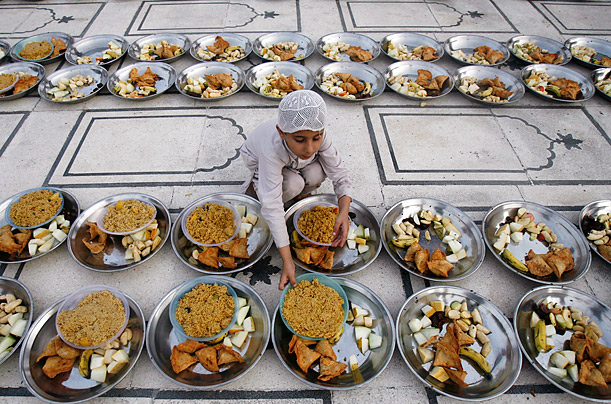An evening I was at a friend’s house for an iftar party which is Islamic dinner for breaking the daylong roza i.e. fast. There were some other guests as well. The host’s six years old son, an intelligent, cute and active boy played with the guests, talked, laughed, jumped about. Since he was the only child present there, he drew attention to himself.
After some time his dad, the host, probably found that his presence was not letting the conversation of the adults flow easily, asked him in a firm voice to go upstairs and watch TV or play in his room. The boy ignored the ‘order’ from his father. A few minutes later, the Dad asked him again to go upstairs. This time his tone was angry. The boy mumbled something but the Dad was firm. “No,” he said, “You go now, this very minute, or you’ll be given TIME OUT.

To either force his ‘order’ physically or just to show that he meant business, our friend got up from his seat. Even before he had taken his first step towards his son, the boy threw a tantrum. His eyes dilated, he clenched his fists, stomped his feet, started trembling and shrieked allowed. His mom came running from the kitchen. The son looked at his father with hatred and said, “All right! Let me get the TIME OUT. I don’t care!”
Something like this coming from a 6-year old startled me. I began to feel, for a moment at least, that I was the boy and I had been hit by my father for ‘disobeying’ him, back in the forties of the last century, when I was this age. I re-lived the entire episode of my own punishment when I didn’t know the meaning of the word but believed, and honestly so, that no adult had the right to hit a child, even if the child had erred and the hitter was his father. I came out of the sudden relapse into my childhood almost instantly but I felt all the vibrations of that moment as if I was the child standing before the guests, a little bundle of rage, mutiny, loathing and repulsion.
Without getting too psychoanalytical about it, the reason we are tempted to put others, particularly our own children, down is that our ego mistakenly believes that if we are spanking them, we’re making them better human beings. Indeed, if that happens too often, we create for ourselves an aura or climate of a fearsome person who has both the physical strength and the moral authority to do so. What comes out of this tangle is the snake of the culture of violence, verbal -and the most abhorrent –physical. Indeed, if it is our own child, and we pay attention to the way we feel after we’ve spanked the baby-of-yesteryear, the flesh of our flesh and the blood of our blood, we’ll notice that we feel worse than before the put-down. Our heart, the compassionate part of us, knows that it’s impossible to feel better at the expense of our own child.
Satyapal Anand is a famous poet, philosopher and writer based in USA.





